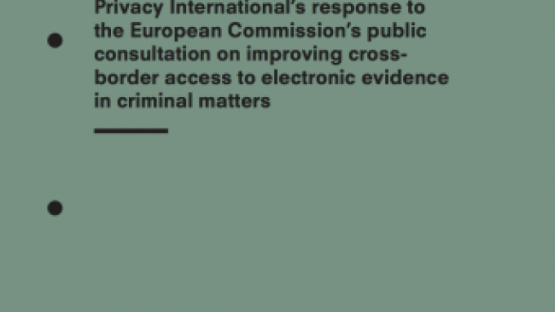Privacy International’s response to the European Commission’s public consultation on improving cross-border access to electronic evidence in criminal matters

On 23 October 2017, Privacy International contributed to the public consultation of the European Commission on improving cross border access to electronic evidence for criminal investigation. The consultation raises important questions, particularly in relation to preserving human rights protection and safeguards as national police forces seek digital evidence in other jurisdictions.
The EU is not the only inter-governmental organisation seeking to address the complex jurisdictional and technical issues surrounding the access of digital data across borders. The Council of Europe is developing a new protocol to its CyberCrime Convention, which is likely to touch upon similar issues (see comments by non-governmental organisations, including ours.
The UN counter-terrorism committee has also begun discussing cross border access to evidence (see PI’s contribution). At bilateral level, the U.S.-U.K. bilateral agreement has received significant attention here, here, and here.
Privacy International believes that irrespective of the way data (subscriber information, metadata, content) stored extraterritorially is accessed (e.g. MLAT, mutual recognition regimes, police-to-police cooperation or direct request by the national authorities to service providers in another country) the following principles and safeguards (based on international human rights law) must apply: legality, necessity and proportionality, prior judicial authorisation, effective oversight, notification and access to effective remedy.



